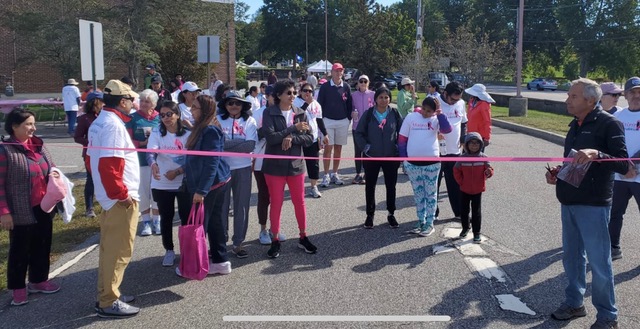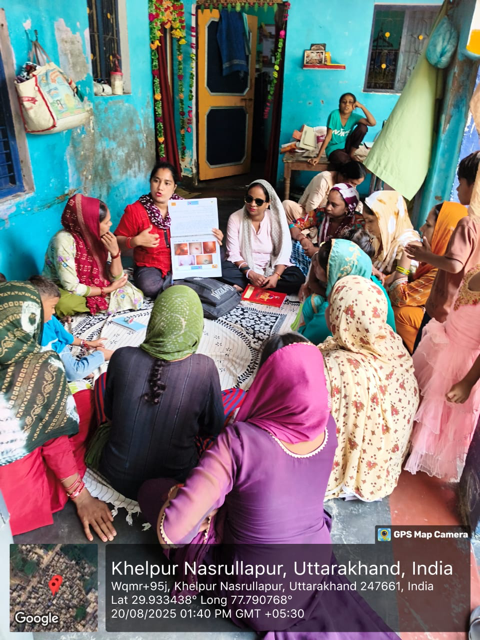
NEWSLETTER
September 2025

Welcome to the Maina Foundation Newsletter!
Good News! 7000 Steps May Be Good Enough
By Manju Soni
Dear friends
I hope you’re having a beautiful and fun summer. Although, I have to say I’m a little sad how quickly it’s gone by.
In our May 2024 newsletter, titled ‘10,000 Steps a Day: Fact or Fiction,’ I addressed the fitness target of walking 10 000 steps a day to keep the doctor away. It apparently began as a 1960s Japanese marketing campaign for a pedometer, and quickly went viral even in the pre-internet era.
In that newsletter I asked whether walking 10 000 steps a day had a positive impact on health, and it does. In a 2022 publication—Daily steps and all-cause mortality: a meta-analysis of 15 international cohorts—researchers analyzed 15 studies, with start dates between 1999 and 2018 and found higher quartiles of steps per day were associated with a reduced risk of mortality.
But, 10 000 steps add up to almost 5 miles and would take me, at a rapid pace, approximately 1.5 hours to cover. That’s a good chunk of time, even if some of those steps are done while going about my normal day.
I was thrilled to read this recent Aug 2025 study, Daily steps and health outcomes in adults, in the Lancet where the researchers did a systematic review of multiple studies for all-cause mortality, cardiovascular disease incidence, dementia, and falls.
What they found was a reduction in these parameters, with inflection points at around 5000–7000 steps per day.
Compared with 2000 steps per day, 7000 steps per day was associated with:
- A 47% lower risk of all-cause mortality
- A 25% lower risk of cardiovascular disease incidence
- A 47% lower risk of death from cardiovascular disease
- A 6% lower risk of cancer incidence
- A 37% lower risk of death from cancer
- A 14% lower risk of type 2 diabetes
- A 38% lower risk of dementia
- A 22% lower risk of depressive symptoms an
- A 28% lower risk of falls
But what about 7000 steps compared with 10000 steps a day?
Well, they found step counts exceeding 7000 steps per day were associated with moderately further lower risks for all-cause mortality, cardiovascular disease incidence, cancer mortality, dementia, and depressive symptoms compared with 7000 steps per day.
Their conclusion was, “Although 10 000 steps per day can still be a viable target for those who are more active, 7000 steps per day is associated with clinically meaningful improvements in health outcomes and might be a more realistic and achievable target for some.”
Why does walking more result in better health?
The answers may be fairly obvious.
- Heart health: Walking gets your blood pumping, reducing the risk of heart disease. It lowers blood pressure and improves circulation. Your heart will thank you!
- Mood Booster: Physical activity releases the feel-good hormones, endorphins. A daily walk can reduce anxiety, depression, and stress. Hello, happy vibes!
- Weight Management: Walking helps burn calories and can aid in maintaining or losing weight. Plus, it revs up your metabolism.
- Brain Power: Regular walking improves cognitive function and memory. It even lowers the risk of cognitive decline and diseases like Alzheimer’s.
- Social Steps: Walking is a fantastic way to bond with friends, family, or doggy companions.
How do I include more steps in my day?
Some activity is better than no activity
The U.S. Department of Health and Human Services recommends 150 minutes a week of moderate-intensity exercise, such as brisk walking. But you don't have to jump feet-first into the 150-minute goal. Start where you are and gradually increase your activity week by week.
Those 150 minutes a week can be divided in many different ways. Some people aim for 30 minutes of exercise five days a week. Others fit in 10 minutes of exercise several times a day.
If your walking pace isn't speedy enough to qualify as moderate-intensity exercise, you can build up the intensity slowly over weeks or even months. In fact, adding any regular activity to your routine is beneficial.

Tips to Hit Your Step Goal
Feeling inspired? Here are some fun ways to make those 10,000 steps fly by:
- Take the dog for a walk. If you don't have a dog, volunteer to walk dogs at an animal shelter. Or combine your activity with social time by joining a friend to walk his or her dog.
- Try music. A bouncy or techno beat or something with a strong rhythm can make activity more enjoyable and help motivate you to walk farther or faster.
- Include the family. Instead of an afternoon movie, go for a walk or hike together.
- Park far away: Choose the farthest parking spot or get off the bus a stop early.
- Take the stairs. Even going down the stairs counts as steps and burns calories.
- Schedule workday walks. Put reminders in your calendar for short walking breaks.
- Deskercise: Set hourly reminders to stand up and do a desk workout (no, do not twerk on top of your desk!). Take a short walk around your office or home.
- Walk and Talk: Take a call or a meeting on the go and rack up those steps.
- Walk while waiting. Take a walk instead of sitting when you’re early for an appointment or waiting for a flight.
- Explore: Discover new walking trails or take a different route.
- Step It Up: Invest in a good pedometer or fitness tracker to keep track of your progress and celebrate milestones.
Final Steps
Remember, every step counts towards a healthier you. So, put one foot in front of the other and enjoy the journey. After all, the road to wellness is best traveled one step at a time.
Thank you for reading and your valuable support! Please consider forwarding this newsletter to anyone who may benefit from this information.
Happy stepping, and remember to continue screening for you and your loved ones!!
Manju Soni (she/her) (pen name: M. J. Soni) is a former eye surgeon turned author. She is the author of Defying Apartheid, her debut nonfiction book that captures her experiences of being a young activist against apartheid. Her short fiction and essays has appeared in Ellery Queen Mystery Magazine, Akashic Books, Apeiron Review and The Establishment. She’s a member of Crime Writers of Color and Sisters in Crime (National and Connecticut). https://manjusoni.com
News!
Our partners at the All India Institutes of Medical Sciences (AIIMS) have received approval for a Maina Foundation funded program recruiting 300,000 women to assess awareness of breast cancer and strengthen screening and diagnosis of breast cancer in rural areas around Raebareli, a city in Uttar Pradesh.
In other news related to AIIMS, Maina Foundation has sponsored a breast cancer camp in Uttarakhand, a state in northern India.

We thank you for your continued support!
For more information on Maina Foundation, and to help its mission, go to https://mainafoundation.org or contact us at 860-434-3985 or info@mainafoundation.org
SAVE A LIFE - DONATE NOW
Donations can also be mailed to:
8 Peppermint Ridge, Old Lyme, CT 06371, USA
